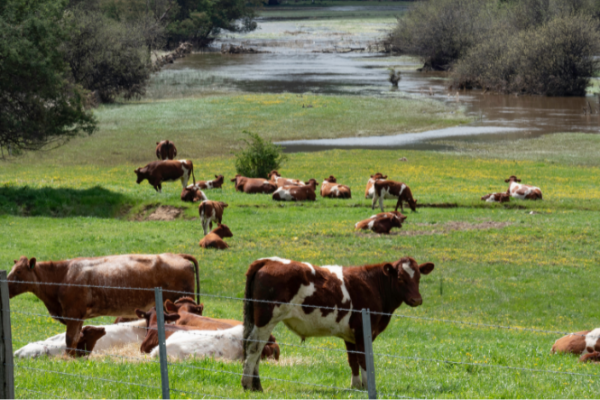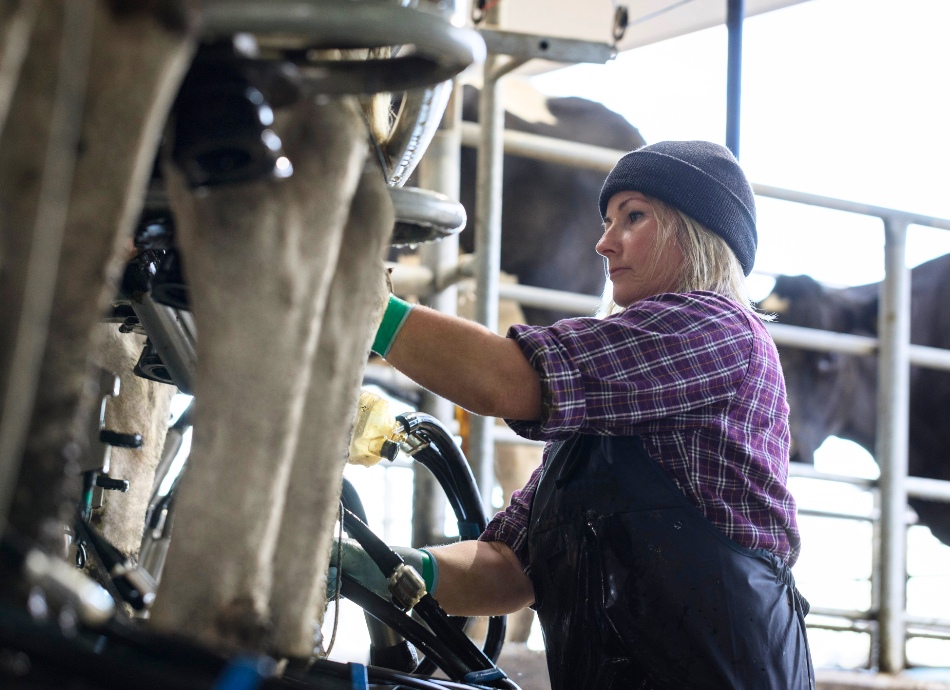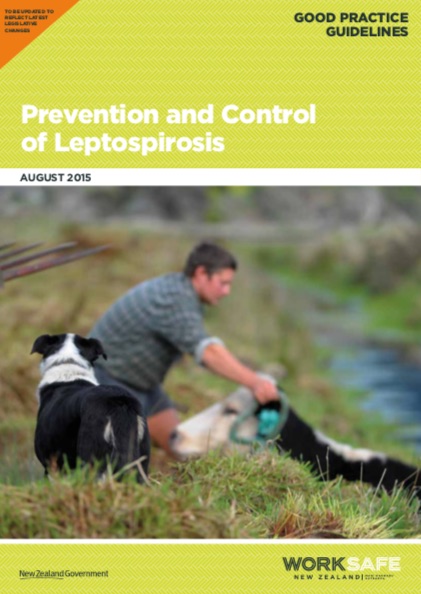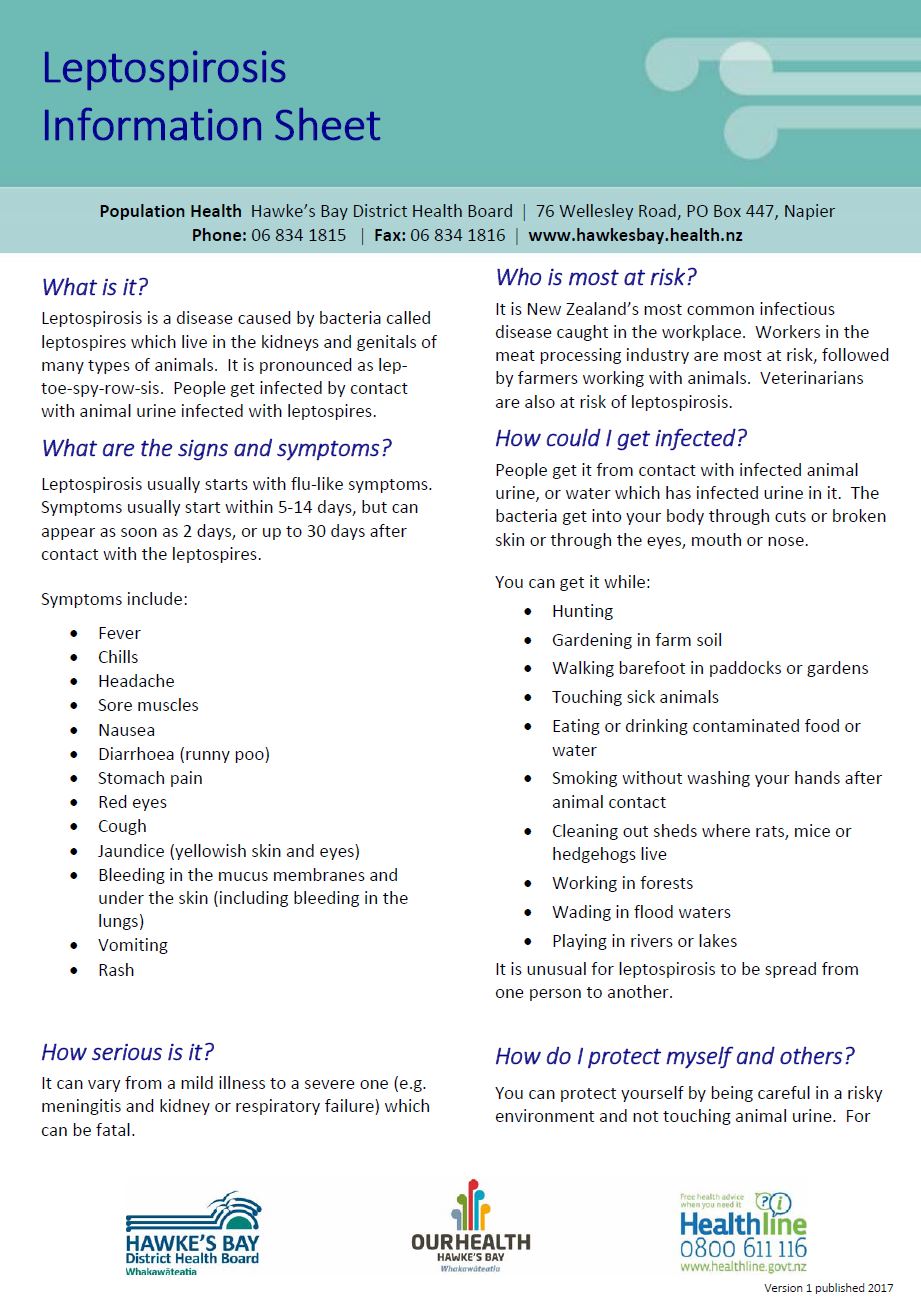Leptospirosis spreads from animals to humans. Leptospira bacteria live in the kidneys of some animals (eg, rats, hedgehogs, possums or farm animals) and are present in their urine (pee). You get infected through contact with the urine of these animals or with water that's been contaminated by infected urine. The bacteria enter your body through cuts in your skin or through the inside surfaces of your nose, mouth and eyes.
You're most likely to get it when working directly with animals in the meat processing, farming or veterinary industries.
You may also get it from:
- hunting
- gardening in farm soil
- walking barefoot in paddocks or gardens
- touching sick animals
- eating or drinking contaminated food or water
- smoking without washing your hands after animal contact
- cleaning out sheds where rats, mice or hedgehogs live
- working in forests
- wading in flood waters
- playing in contaminated rivers or lakes.
It's unusual for leptospirosis to be spread from one person to another.
You don’t have to come into direct contact with the urine or tissue of an infected animal. Even a splash or fine spray of urine or indirect contact with urine-contaminated water (eg, water used to clean down a cowshed) can spread a large number of the spiral-shaped bacteria (leptospires).
Note: Flood waters may become infected when rivers overflow onto nearby farmland, so it's important to protect yourself if you're working or living in flooded areas. Read more about how to protect yourself in the 'how to prevent leptospirosis' section below.

Image credit: Canva









